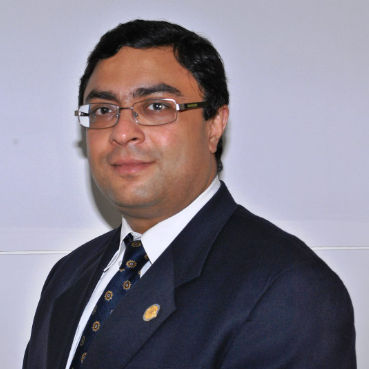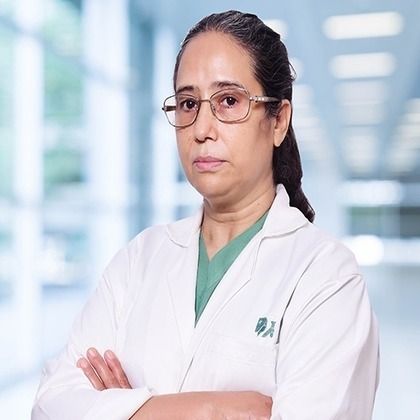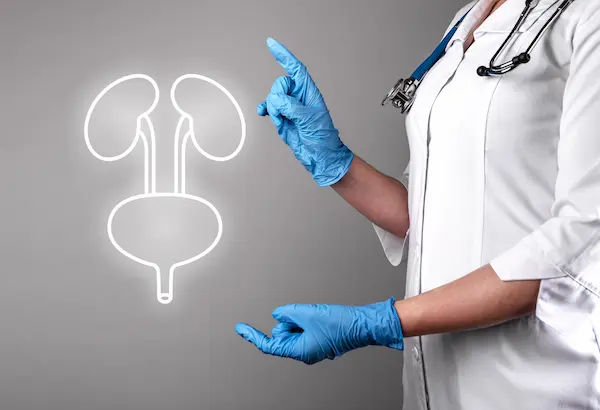Colon Cancer Signs: 10 Key Symptoms & What Causes Them
Learn about the signs and symptoms of colon cancer, what causes it, major risk factors, prevention, and how it is diagnosed. Early detection can save lives.

Written by Dr. Mohammed Kamran
Reviewed by Dr. Dhankecha Mayank Dineshbhai MBBS
Last updated on 13th Jan, 2026

Introduction
Colon cancer, a type of cancer that begins in the large intestine (colon), is one of the most common cancers worldwide. Its signs can be subtle and easily mistaken for less serious conditions, which is why understanding what to look for is crucial for early detection. This article will demystify the symptoms of colon cancer, explore the underlying causes and risk factors that lead to its development, and empower you with knowledge about prevention and screening. Early discovery dramatically improves treatment outcomes, making this information potentially life-saving. We’ll break down the science behind the disease into clear, actionable insights you can use to protect your health.
Understanding Colon Cancer: A Brief Overview
Before exploring the symptoms in detail, it helps to understand how colon cancer develops and why the colon plays such a vital role in your overall health.
The Colon's Role in Your Body
Your colon, or large intestine, is the final part of your digestive system. Its primary job is to absorb water and electrolytes from indigestible food matter, then move the resulting waste (stool) toward the rectum for elimination. When cancer develops here, it disrupts these essential functions, leading to the symptoms we associate with the disease.
How Polyps Become Cancerous
Most colon cancers begin as small, non-cancerous clumps of cells called adenomatous polyps. Over time, some of these polyps can evolve into cancer. This process, known as carcinogenesis, can take many years, which is why regular screening is so effective; it can find and remove polyps before they turn cancerous.
The Most Common Signs and Symptoms of Colon Cancer
Being aware of the early symptoms of colon cancer is your first line of defence. If you experience any of the following persistently for more than two weeks, it is essential to pay attention.
Changes in Bowel Habits You Can't Ignore
This is one of the most frequent indicators. Look for persistent:
- Diarrhoea or constipation
- A change in the consistency of your stool (e.g., narrow, pencil-thin stools)
- A feeling that your bowel doesn't empty completely
Bleeding and What It Might Mean
- Rectal bleeding or blood in your stool is a major red flag. This can appear as:
- Hematochezia: Bright red blood in the toilet bowl or on the toilet paper, often associated with bleeding in the rectum or lower colon.
- Melena: Dark, tarry stools caused by bleeding higher up in the digestive tract. This blood loss can also lead to iron deficiency anaemia, causing fatigue and weakness.
Abdominal Discomfort
Persistent abdominal issues like cramps, gas, pain, or a feeling of bloating or fullness can be a sign. What does colon cancer pain feel like? It's often a constant, dull ache or cramping that doesn't go away with typical remedies.
Unexplained Weight Loss and Fatigue
Losing weight without trying is a common symptom of many cancers, including colon cancer. This happens because cancer cells consume your body's energy. Fatigue can also result from the cancer causing blood loss, leading to anaemia.
Consult Top Oncologists
The Root Causes: What Actually Leads to These Signs?
The signs themselves are a result of the tumour's physical presence and its effect on the body. But what causes the cancer to start?
The Genetic Blueprint: Inherited Syndromes
A small percentage of colon cancers are linked to inherited genetic mutations passed through families. The most common are Lynch syndrome (HNPCC) and familial adenomatous polyposis (FAP), which significantly increase the risk.
The Role of Gene Mutations Over a Lifetime
Most gene mutations that lead to colon cancer are acquired during a person's life and are not inherited. These mutations can occur randomly or be triggered by environmental factors like diet and inflammation. These mutations cause cells to divide uncontrollably and evade cell death, forming a tumour.
Major Risk Factors You Need to Know About
While the exact cause isn't always clear, several factors increase your risk.
Non-Modifiable Risks
- Age: The vast majority of people diagnosed are over 50, though rates are rising in younger people.
- Personal History: If you've had polyps or colon cancer before, you're at higher risk for another.
- Family History: Having a close relative with the disease increases your risk.
Inherited Syndromes: As mentioned above. - Race: African Americans have a higher incidence and mortality rate.
Lifestyle Factors Within Your Control
- Diet: A diet high in red meat and processed meat (like hot dogs and lunch meat) is a well-established risk. A low-fibre, high-fat diet may also contribute.
- Sedentary Lifestyle: Lack of physical activity increases risk.
- Obesity: Being significantly overweight increases your risk of developing and dying from colon cancer.
- Smoking and Heavy Alcohol Use: Both are linked to a higher risk.
Underlying Health Conditions
People with inflammatory bowel disease (IBD), such as Crohn's disease or ulcerative colitis, have a chronically inflamed colon, which increases their risk of colon cancer over time. Type 2 diabetes and insulin resistance are also associated with an increased risk.
How is Colon Cancer Diagnosed?
If you present with symptoms or are of screening age, your doctor will recommend tests.
The Critical Role of a Colonoscopy
This is the gold standard. A long, flexible tube with a camera is used to view the entire colon. If polyps are found, they can be removed during the procedure and biopsied. If you are experiencing persistent symptoms, a doctor can determine if a colonoscopy is necessary.
Other Diagnostic Tools
- FIT Test: A stool test that detects hidden blood.
- CT Colonography: A virtual scan of the colon.
- Biopsy: Removing a small tissue sample for lab analysis is the only definitive way to diagnose cancer.
Prevention and Early Detection: Your Best Defence
While risk factors exist, there are proven ways to lower your chances of developing colon cancer, and regular screening remains the strongest tool for catching it early.
The Power of Regular Screening
Screening is the number one most effective method for preventing colon cancer. It can find precancerous polyps so they can be removed before they turn into cancer. Guidelines generally recommend starting regular screening at age 45 for average-risk individuals.
Lifestyle Changes to Lower Your Risk
- Eat a variety of fruits, vegetables, and whole grains.
- Limit red and processed meats.
- Exercise regularly.
- Maintain a healthy weight.
- Avoid smoking and limit alcohol.
Conclusion
Understanding the signs of colon cancer and the factors that lead to it empowers you to take an active role in your health. While some risks, such as age and genetics, are beyond our control, many lifestyle choices are not. The journey from a polyp to cancer is often slow, giving us a critical window of opportunity. Heed your body's signals, know your family history, and commit to recommended screening guidelines. If you are experiencing any persistent symptoms or have concerns about your risk factors, consult a doctor online with Apollo24|7 for further evaluation and to discuss whether a screening test is right for you. Early action is your best defence.
Consult Top Oncologists
Consult Top Oncologists

Dr. Sanchayan Mandal
Medical Oncologist
17 Years • MBBS, DrNB( MEDICAL ONCOLOGY), DNB (RADIOTHERAPY),ECMO. PDCR. ASCO
Kolkata
MCR SUPER SPECIALITY POLY CLINIC & PATHOLOGY, Kolkata

Dr Gowshikk Rajkumar
Oncologist
10 Years • MBBS, DMRT, DNB in Radiation oncology
Bengaluru
Apollo Clinic, JP nagar, Bengaluru
Dr. B Shravanthi Reddy
Radiation Specialist Oncologist
8 Years • MBBS, DNB(Radiation Oncology)
Manikonda Jagir
Apollo Clinic, Manikonda, Manikonda Jagir

Dr Shaikat Gupta Director Surgical Onco
Surgical Oncologist
35 Years • MBBS (University Gold Medalist), MS, FRCSEd
Kolkata
Apollo Multispeciality Hospitals , Kolkata, Kolkata
(250+ Patients)

Dr. Ruquaya Ahmad Mir
Surgical Oncologist
20 Years • MBBS, DNB
Delhi
Apollo Hospitals Indraprastha, Delhi
(25+ Patients)
Consult Top Oncologists

Dr. Sanchayan Mandal
Medical Oncologist
17 Years • MBBS, DrNB( MEDICAL ONCOLOGY), DNB (RADIOTHERAPY),ECMO. PDCR. ASCO
Kolkata
MCR SUPER SPECIALITY POLY CLINIC & PATHOLOGY, Kolkata

Dr Gowshikk Rajkumar
Oncologist
10 Years • MBBS, DMRT, DNB in Radiation oncology
Bengaluru
Apollo Clinic, JP nagar, Bengaluru
Dr. B Shravanthi Reddy
Radiation Specialist Oncologist
8 Years • MBBS, DNB(Radiation Oncology)
Manikonda Jagir
Apollo Clinic, Manikonda, Manikonda Jagir

Dr Shaikat Gupta Director Surgical Onco
Surgical Oncologist
35 Years • MBBS (University Gold Medalist), MS, FRCSEd
Kolkata
Apollo Multispeciality Hospitals , Kolkata, Kolkata
(250+ Patients)

Dr. Ruquaya Ahmad Mir
Surgical Oncologist
20 Years • MBBS, DNB
Delhi
Apollo Hospitals Indraprastha, Delhi
(25+ Patients)
More articles from Colon Cancer
Frequently Asked Questions
Can haemorrhoids be a sign of colon cancer?
Haemorrhoids are a common cause of rectal bleeding and are usually not cancerous. However, colon cancer can cause bleeding that is mistaken for haemorrhoids. It's crucial to get any rectal bleeding evaluated by a doctor to determine the true cause.
What are the early symptoms of colon cancer in women?
The signs of colon cancer are generally the same for all genders: changes in bowel habits, rectal bleeding, abdominal discomfort, unexplained weight loss, and fatigue. There are no unique early symptoms of colon cancer specific to women.
How to check for colon cancer at home?
You cannot definitively check for colon cancer at home. However, at-home screening tests like the FIT kit (Fecal Immunochemical Test) can detect hidden blood in your stool, which can be an early sign. A positive result requires follow-up with a colonoscopy for a definitive diagnosis.
Is colon cancer curable?
When detected at an early, localised stage, the five-year survival rate for colon cancer is very high, often over 90%. This highlights the critical importance of early detection through screening and paying attention to symptoms.
At what age should you get screened?
For people at average risk, guidelines from major organisations recommend starting regular screening at age 45. Those with a family history or other risk factors may need to start earlier. You should discuss the right timeline for you with your doctor.

